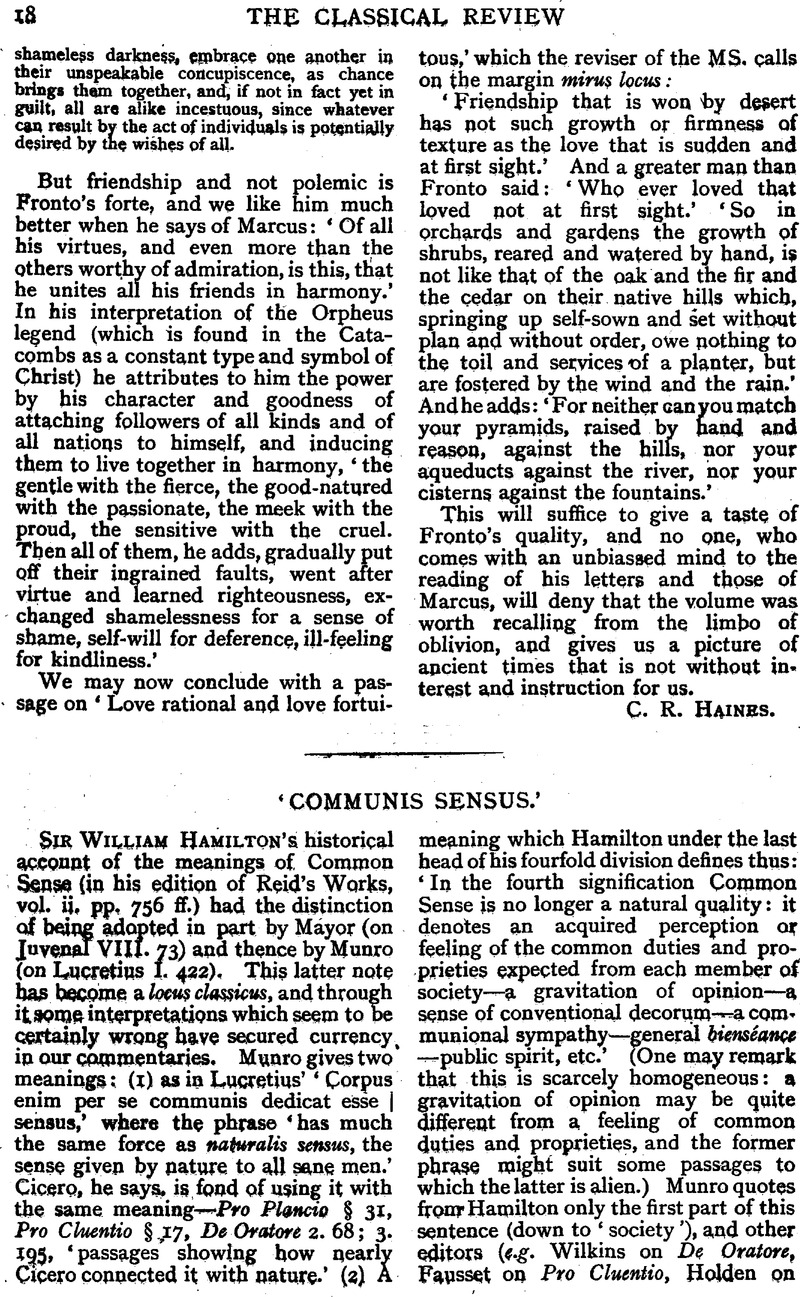Article contents
‘Communis Sensus.’
Published online by Cambridge University Press: 27 October 2009
Abstract

- Type
- Original Contributions
- Information
- Copyright
- Copyright © The Classical Association 1920
References
page 19 note 1 Hamilton cites these passages to exemplify communis senses as the source of moral judgment.
page 20 note 1 DrPostgate, , on insufficient grounds, denied that sensus ever means ‘thought’ in republican Latin (Journal of Philology, XXIV. p. 135)Google Scholar. DrReid, J. S. has produced numerous instances, showing that ‘in the best period of Latin the word covers the whole range of meaning which lies between feeling and thought’ (Harvard Studies in Class. Phil. XXII. p. 44)Google Scholar. One would expect communis sensus to correspond.
- 1
- Cited by


